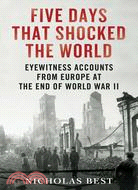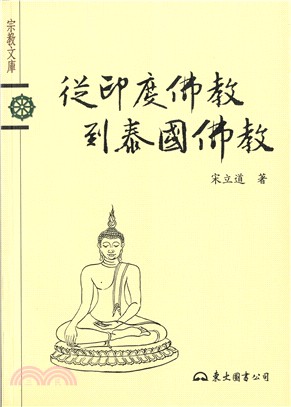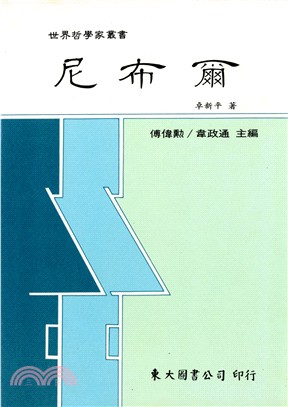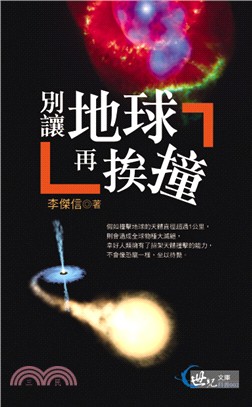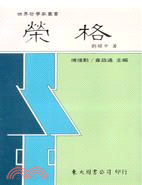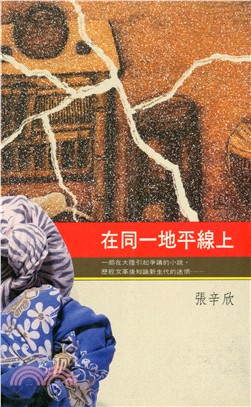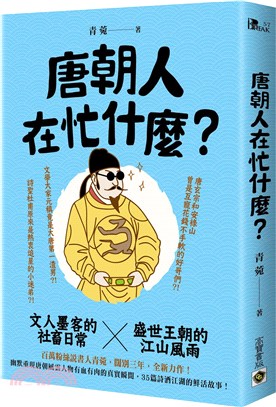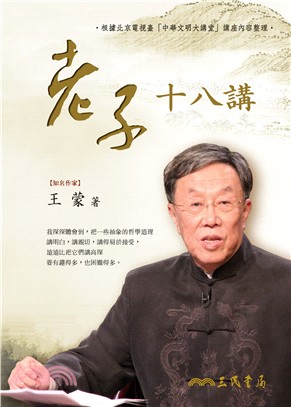Five Days That Shocked the World
商品資訊
定價
:NT$ 980 元優惠價
:79 折 774 元
絕版無法訂購
相關商品
商品簡介
作者簡介
名人/編輯推薦
書摘/試閱
商品簡介
An intense account from the execution of Mussolini, to Hitler’s suicide, to the fall of Berlin
作者簡介
NICHOLAS BEST grew up in Kenya and was educated there, in England, and at Trinity College, Dublin. He served in the Grenadier Guards and worked as a journalist in London. He was theFinancial Times fiction critic for ten years and is the author of The Greatest Day in History, a narrative on the end of World War I.
名人/編輯推薦
UK Praise for THE GREATEST DAY IN HISTORY:
"Reading it is like looking into a photograph album full of vivid snaps of the world taken during a week of high tension, crisis, celebration, tragedy and illusion."—DAILY MAIL
"Scintillating ... a miscellany of tragedy mixed with delight."—LITERARY REVIEW
"Reading it is like looking into a photograph album full of vivid snaps of the world taken during a week of high tension, crisis, celebration, tragedy and illusion."—DAILY MAIL
"Scintillating ... a miscellany of tragedy mixed with delight."—LITERARY REVIEW
書摘/試閱
THE DEATH OF MUSSOLINI
TIME WAS RUNNING OUT FOR MUSSOLINI. Fleeing the Allied advance near Lake Como, he had been captured by Italian partisans on the afternoon of April 27, 1945, and taken to a safe house in the mountains, where his few remaining friends couldn't find him. He and his mistress, Clara Petacci, had arrived at Azzano in the early hours of April 28, and had spent the rest of the night under guard in a peasant's house high above the village. They were being watched over by two young partisans who had stayed awake all night outside their door. One of the young men, spying on Clara as she washed in the outhouse before bed, had reported back to the other that Mussolini's girlfriend had magnificent breasts. He could quite understand why Il Duce kept her for his mistress.
Now it was morning again, late morning, and Mussolini had just woken from a deep sleep. Clara had cried during the night, her mascara staining the pillow, but Mussolini had slept very heavily. His eyes were bloodshot when he awoke, his face pale and gray beneath the stubble. It was obvious to his captors that Italy's former dictator was in the depths of despair as he braced himself for whatever the new day would bring.
He ate little for breakfast, toying with a plate of bread and salami in the bedroom while the partisans stood guard over him. He asked them if the Americans had taken Como during the night, nodding resignedly when they said they had. Afterward, Clara went back to bed, pulling up the covers and trying to catch up on her sleep, while Mussolini sat on the edge of the mattress looking out of the window toward the snow-covered mountains across the lake.
He was still there when the executioners came for him at four that afternoon. They came upstairs in a hurry, led by a tall man in a fawn raincoat who called himself Colonel Valerio. In reality, the man was Walter Audisio, a Communist veteran of the Spanish Civil War who had remained a committed antifascist ever since.
Audisio was carrying a Sten gun as he burst into the room.
"Quick!" he told Mussolini. "I've come to rescue you."
"Really?" Mussolini didn't conceal his skepticism. "How very kind of you."
"Are you armed?" Audisio asked.
Mussolini had stolen a knife from the kitchen the night before and hidden it in the bed. But he assured Audisio he wasn't armed.
Audisio turned to Clara. She was still in bed, her face against the wall. "You too," he told her. "Come on. Get up."
Mussolini put his coat on while Clara rummaged frantically among the bedclothes. "What are you looking for?" Audisio demanded.
"My knickers."
"Don't worry about them. Just get a move on."1
Clara was forced to leave her handbag behind as well as her underpants. She clattered reluctantly down the stairs and was escorted out of the house while her lover trailed along in the rear. Lia De Maria, whose house it was, watched from a side window and crossed herself nervously as they disappeared. She liked what little she had seen of Clara. She hoped nothing unpleasant was about to happen to her.
They stumbled down the mountain path, Clara, in her high heels, clinging desperately to Mussolini, who had no strength left to support her. He almost fell at one point, steadying himself against a wall. Clara tried to help him, but was pushed roughly away. Mussolini had nothing to say to her as they continued past a trio of women washing clothes in a stone trough and made their way toward the main road. They were spotted by an old man coming down the hill with a bale of hay on his back and by a woman strolling with a child. Nobody recognized Mussolini, although they all wondered why the smartly dressed woman with him was crying.
A car was waiting for them on the road, a black Fiat sedan with a Roman license plate. Rosita Barbarita was walking her dogs nearby as the party appeared. Audisio waved his gun and told her to go away. She did so, hastily beating a retreat as Mussolini and his mistress were shoved into the back of the Fiat.
Audisio found a seat on the mudguard as the car started off. His companions stood on the running boards with their weapons at the ready. The two young partisans who had guarded Mussolini during the night followed at a brisk trot, hurrying along behind the car as it headed along the mountain road toward the little village of Mezzegra and the lake beyond.
The car hadn't gone more than a few hundred yards when it stopped again at a bend in the road, out of sight from either direction. The driver pulled up at the gates of the Villa Belmonte. Mussolini and Clara were ordered out and told to stand against the wall. Clara threw her arms around her lover and stared in disbelief as Audisio mumbled a few words about a sentence of death and justice for the Italian people.
"You can't do that!" Clara protested. "You can't shoot Mussolini!"
"Get away from him!" Audisio replied. "Get away or you'll die, too!"
But Clara Petacci wasn't listening. She refused to let go of Mussolini. She was still clinging to him, still protesting, when Audisio pulled the trigger.
* * *
WHILE MUSSOLINI WENT TO HIS DEATH, his wife Rachele was in hiding a few miles away, at the southern end of the lake. With nowhere else to go, she and their youngest two children had been taken to Cernobbio, just outside Como, where a friendly Blackshirt had given them shelter in his own home. The house wasn't safe, but it was better than being on the streets, where Fascists and anyone else associated with Mussolini were being hunted down and killed without compunction.
Rachele Mussolini was in despair as she listened to the gunfire all around. The imminent arrival of the American army had been the signal for a mass uprising against the remaining Fascists in the north of Italy. Mussolini himself had fled a few days earlier, with a vague idea of making a last stand in the Alps, only to find his supporters melting away as the Americans advanced. In panic, he had written to his wife, telling her to save herself and the children, and had joined a column of German soldiers heading back to Germany. He might have gotten away with it if an Italian partisan hadn't recognized his face under a German helmet. Instead, he had been arrested and taken to the mountains to await his fate.
His letter to Rachele had been written when he was still contemplating a last stand in the Alps:
Dear Rachele,
Here I am at the last stage of my life, the last page of my book. We two may never meet again, and that is why I am writing and sending you this letter. I ask your forgiveness for all the harm I have unwittingly done you. But you know that you are the only woman I have ever really loved. I swear it before God, I swear it before our Bruno, in this supreme moment. You know that we must make for the Valtellina. Take the children with you and try to get to the Swiss frontier. There you can build up a new life. I do not think they will refuse to let you in, for I have always been helpful to them and you have had nothing to do with politics. If they do refuse, surrender to the Allies who may be more generous than the Italians. Take care of Anna and Romano, especially Anna who needs it so badly. You know how I love them. Bruno in heaven will help you. My dearest love to you and the children.
Your Benito.2
Taking Mussolini at his word, Rachele had left for Switzerland in the middle of the night with fifteen-year-old Anna Maria and seventeen-year-old Romano in tow. The border was only three miles from Como, easily identified by the bright lights twinkling peacefully beyond Italy's blackout. They had joined a queue of cars at the frontier, where an Italian officer sent by Mussolini was waiting to help them across. They had been within five yards of safety when the Swiss border guards, after a study of their papers and some discreet telephoning, had shaken their heads regretfully and told them they would not be allowed in. It was "absolutely impossible" for the Mussolinis to enter Switzerland.
Rachele had been disappointed but not downhearted as they turned away from the frontier. In fact, she had felt rather relieved at the thought of not having to leave Italy. They had driven back to Como in the dark, along a road clogged with Germans and Italians fleeing in every direction. Antifascist partisans were already streaming back from Switzerland and pouring down from the mountains to seize control of the country. There had been outbreaks of shooting from time to time, although Como itself had been quiet when they returned.
They had driven straight to the Fascist headquarters, only to discover that no one there had any idea what to do with them. Seeing that they were wasting their time, Rachele and her children had left again, Anna Maria sitting disconsolately on the steps outside as they wondered where to go and what to do next. It wasn't until dawn that help had arrived in the form of a Mussolini supporter who had taken pity on them, as Rachele gratefully recalled:
One of our faithful Blackshirts insisted that it was too dangerous to hang about in the streets. We held a conference and he advised us to take refuge in a house some way away, where he lived. We made for it. Our arrival caused something of an upheaval in the small, poorly furnished cottage. They had no food to spare, and I ended up making breakfast for everyone with what remained of the provisions I had brought with me.
The Blackshirts went off to find news of the Duce and when they came back said they were going to take us to join the column in which my husband was travelling. They also told me that our car had been stolen.
The sound of shooting came nearer. We looked down the road through the tiny window and witnessed scenes of panic. Our hosts were terrified and I spent all my time encouraging them. Helping others made my own distress more bearable. A young boy, recognized to be a Fascist, was murdered before our eyes. A single denunciation was enough for immediate execution. Every now and then we listened to the radio broadcasting orders to hunt the Fascists down without mercy. From a nearby hospital badly wounded soldiers, wearing whatever they could find, came flying out to scatter all over the town. The whole world seemed to have turned into a living hell. The children were panic-stricken.3
In the circumstances, it had proved impossible for Rachele and her children to rejoin Mussolini. And now it was too late, although they didn't know it yet. They had been hiding in the Blackshirt's house for the past two days, too scared to show their faces outside while civil war raged all around. Rachele knew, though, that they would have to leave soon, because they were putting the Blackshirt in grave danger by staying. He and his whole family might be dragged out and shot if they were caught with the Mussolinis under their roof. The decent thing to do was to hide somewhere else until the killing had stopped. But where? With chaos in the streets and everyone's hand against them, Rachele Mussolini was uncomfortably aware that she and her children had nowhere else to go.
* * *
THE EXECUTION OF MUSSOLINI did not go as planned. The Sten gun jammed when Audisio fired. Cursing, he grabbed his revolver, only for that to jam as well. Seeing what was about to happen, Mussolini threw open his coat, according to one eyewitness, and faced Audisio squarely, defying him to do his worst.
"Shoot me in the chest," he said.
One of Audisio's men hurriedly gave him his own weapon. This time there was no mistake. Clara Petacci was hit first and died at once. Mussolini fell back against the wall next to her and slid to the ground, still alive. Walking over, Audisio shot him again, at close range. Mussolini jerked convulsively and then lay still, his body just touching Clara's by the wall. Everyone else watched in horror, aghast at what they had just seen. It had happened so fast that they all remembered it differently when they talked about it afterward.
Audisio needed a cigarette when it was all over. The driver had one, too, although he didn't smoke. No one said anything as they stooped to pick up the spent cartridge cases. Behind the wall, the people at the villa had heard the gun shots but were waiting a while before coming to investigate. They didn't want to get mixed up in anything that didn't concern them.
The time was still only a quarter past four. The rain that had been threatening all afternoon was beginning to fall as the partisans finished their cigarettes. Leaving the two young men to guard the bodies in the drizzle, Audisio and the others got back in the car and set off for the town of Dongo, where they carried out a number of further executions, among them several of Mussolini's ministers and Clara Petacci's brother. Then they returned to the Villa Belmonte.
The bodies of Clara and Mussolini were taken down to the main road and thrown into a moving van, on top of the others. The van was then driven through the night to Milan. The plan was to put the bodies on display next day in the Piazzale Loreto, where fifteen hostages had been shot by Fascists the previous August. It would be justice, of a sort, now that the war was coming to an end. Audisio's only serious worry, as the van set off, was that American patrols might intercept them on the way and prevent them from reaching their destination.
TIME WAS RUNNING OUT FOR MUSSOLINI. Fleeing the Allied advance near Lake Como, he had been captured by Italian partisans on the afternoon of April 27, 1945, and taken to a safe house in the mountains, where his few remaining friends couldn't find him. He and his mistress, Clara Petacci, had arrived at Azzano in the early hours of April 28, and had spent the rest of the night under guard in a peasant's house high above the village. They were being watched over by two young partisans who had stayed awake all night outside their door. One of the young men, spying on Clara as she washed in the outhouse before bed, had reported back to the other that Mussolini's girlfriend had magnificent breasts. He could quite understand why Il Duce kept her for his mistress.
Now it was morning again, late morning, and Mussolini had just woken from a deep sleep. Clara had cried during the night, her mascara staining the pillow, but Mussolini had slept very heavily. His eyes were bloodshot when he awoke, his face pale and gray beneath the stubble. It was obvious to his captors that Italy's former dictator was in the depths of despair as he braced himself for whatever the new day would bring.
He ate little for breakfast, toying with a plate of bread and salami in the bedroom while the partisans stood guard over him. He asked them if the Americans had taken Como during the night, nodding resignedly when they said they had. Afterward, Clara went back to bed, pulling up the covers and trying to catch up on her sleep, while Mussolini sat on the edge of the mattress looking out of the window toward the snow-covered mountains across the lake.
He was still there when the executioners came for him at four that afternoon. They came upstairs in a hurry, led by a tall man in a fawn raincoat who called himself Colonel Valerio. In reality, the man was Walter Audisio, a Communist veteran of the Spanish Civil War who had remained a committed antifascist ever since.
Audisio was carrying a Sten gun as he burst into the room.
"Quick!" he told Mussolini. "I've come to rescue you."
"Really?" Mussolini didn't conceal his skepticism. "How very kind of you."
"Are you armed?" Audisio asked.
Mussolini had stolen a knife from the kitchen the night before and hidden it in the bed. But he assured Audisio he wasn't armed.
Audisio turned to Clara. She was still in bed, her face against the wall. "You too," he told her. "Come on. Get up."
Mussolini put his coat on while Clara rummaged frantically among the bedclothes. "What are you looking for?" Audisio demanded.
"My knickers."
"Don't worry about them. Just get a move on."1
Clara was forced to leave her handbag behind as well as her underpants. She clattered reluctantly down the stairs and was escorted out of the house while her lover trailed along in the rear. Lia De Maria, whose house it was, watched from a side window and crossed herself nervously as they disappeared. She liked what little she had seen of Clara. She hoped nothing unpleasant was about to happen to her.
They stumbled down the mountain path, Clara, in her high heels, clinging desperately to Mussolini, who had no strength left to support her. He almost fell at one point, steadying himself against a wall. Clara tried to help him, but was pushed roughly away. Mussolini had nothing to say to her as they continued past a trio of women washing clothes in a stone trough and made their way toward the main road. They were spotted by an old man coming down the hill with a bale of hay on his back and by a woman strolling with a child. Nobody recognized Mussolini, although they all wondered why the smartly dressed woman with him was crying.
A car was waiting for them on the road, a black Fiat sedan with a Roman license plate. Rosita Barbarita was walking her dogs nearby as the party appeared. Audisio waved his gun and told her to go away. She did so, hastily beating a retreat as Mussolini and his mistress were shoved into the back of the Fiat.
Audisio found a seat on the mudguard as the car started off. His companions stood on the running boards with their weapons at the ready. The two young partisans who had guarded Mussolini during the night followed at a brisk trot, hurrying along behind the car as it headed along the mountain road toward the little village of Mezzegra and the lake beyond.
The car hadn't gone more than a few hundred yards when it stopped again at a bend in the road, out of sight from either direction. The driver pulled up at the gates of the Villa Belmonte. Mussolini and Clara were ordered out and told to stand against the wall. Clara threw her arms around her lover and stared in disbelief as Audisio mumbled a few words about a sentence of death and justice for the Italian people.
"You can't do that!" Clara protested. "You can't shoot Mussolini!"
"Get away from him!" Audisio replied. "Get away or you'll die, too!"
But Clara Petacci wasn't listening. She refused to let go of Mussolini. She was still clinging to him, still protesting, when Audisio pulled the trigger.
* * *
WHILE MUSSOLINI WENT TO HIS DEATH, his wife Rachele was in hiding a few miles away, at the southern end of the lake. With nowhere else to go, she and their youngest two children had been taken to Cernobbio, just outside Como, where a friendly Blackshirt had given them shelter in his own home. The house wasn't safe, but it was better than being on the streets, where Fascists and anyone else associated with Mussolini were being hunted down and killed without compunction.
Rachele Mussolini was in despair as she listened to the gunfire all around. The imminent arrival of the American army had been the signal for a mass uprising against the remaining Fascists in the north of Italy. Mussolini himself had fled a few days earlier, with a vague idea of making a last stand in the Alps, only to find his supporters melting away as the Americans advanced. In panic, he had written to his wife, telling her to save herself and the children, and had joined a column of German soldiers heading back to Germany. He might have gotten away with it if an Italian partisan hadn't recognized his face under a German helmet. Instead, he had been arrested and taken to the mountains to await his fate.
His letter to Rachele had been written when he was still contemplating a last stand in the Alps:
Dear Rachele,
Here I am at the last stage of my life, the last page of my book. We two may never meet again, and that is why I am writing and sending you this letter. I ask your forgiveness for all the harm I have unwittingly done you. But you know that you are the only woman I have ever really loved. I swear it before God, I swear it before our Bruno, in this supreme moment. You know that we must make for the Valtellina. Take the children with you and try to get to the Swiss frontier. There you can build up a new life. I do not think they will refuse to let you in, for I have always been helpful to them and you have had nothing to do with politics. If they do refuse, surrender to the Allies who may be more generous than the Italians. Take care of Anna and Romano, especially Anna who needs it so badly. You know how I love them. Bruno in heaven will help you. My dearest love to you and the children.
Your Benito.2
Taking Mussolini at his word, Rachele had left for Switzerland in the middle of the night with fifteen-year-old Anna Maria and seventeen-year-old Romano in tow. The border was only three miles from Como, easily identified by the bright lights twinkling peacefully beyond Italy's blackout. They had joined a queue of cars at the frontier, where an Italian officer sent by Mussolini was waiting to help them across. They had been within five yards of safety when the Swiss border guards, after a study of their papers and some discreet telephoning, had shaken their heads regretfully and told them they would not be allowed in. It was "absolutely impossible" for the Mussolinis to enter Switzerland.
Rachele had been disappointed but not downhearted as they turned away from the frontier. In fact, she had felt rather relieved at the thought of not having to leave Italy. They had driven back to Como in the dark, along a road clogged with Germans and Italians fleeing in every direction. Antifascist partisans were already streaming back from Switzerland and pouring down from the mountains to seize control of the country. There had been outbreaks of shooting from time to time, although Como itself had been quiet when they returned.
They had driven straight to the Fascist headquarters, only to discover that no one there had any idea what to do with them. Seeing that they were wasting their time, Rachele and her children had left again, Anna Maria sitting disconsolately on the steps outside as they wondered where to go and what to do next. It wasn't until dawn that help had arrived in the form of a Mussolini supporter who had taken pity on them, as Rachele gratefully recalled:
One of our faithful Blackshirts insisted that it was too dangerous to hang about in the streets. We held a conference and he advised us to take refuge in a house some way away, where he lived. We made for it. Our arrival caused something of an upheaval in the small, poorly furnished cottage. They had no food to spare, and I ended up making breakfast for everyone with what remained of the provisions I had brought with me.
The Blackshirts went off to find news of the Duce and when they came back said they were going to take us to join the column in which my husband was travelling. They also told me that our car had been stolen.
The sound of shooting came nearer. We looked down the road through the tiny window and witnessed scenes of panic. Our hosts were terrified and I spent all my time encouraging them. Helping others made my own distress more bearable. A young boy, recognized to be a Fascist, was murdered before our eyes. A single denunciation was enough for immediate execution. Every now and then we listened to the radio broadcasting orders to hunt the Fascists down without mercy. From a nearby hospital badly wounded soldiers, wearing whatever they could find, came flying out to scatter all over the town. The whole world seemed to have turned into a living hell. The children were panic-stricken.3
In the circumstances, it had proved impossible for Rachele and her children to rejoin Mussolini. And now it was too late, although they didn't know it yet. They had been hiding in the Blackshirt's house for the past two days, too scared to show their faces outside while civil war raged all around. Rachele knew, though, that they would have to leave soon, because they were putting the Blackshirt in grave danger by staying. He and his whole family might be dragged out and shot if they were caught with the Mussolinis under their roof. The decent thing to do was to hide somewhere else until the killing had stopped. But where? With chaos in the streets and everyone's hand against them, Rachele Mussolini was uncomfortably aware that she and her children had nowhere else to go.
* * *
THE EXECUTION OF MUSSOLINI did not go as planned. The Sten gun jammed when Audisio fired. Cursing, he grabbed his revolver, only for that to jam as well. Seeing what was about to happen, Mussolini threw open his coat, according to one eyewitness, and faced Audisio squarely, defying him to do his worst.
"Shoot me in the chest," he said.
One of Audisio's men hurriedly gave him his own weapon. This time there was no mistake. Clara Petacci was hit first and died at once. Mussolini fell back against the wall next to her and slid to the ground, still alive. Walking over, Audisio shot him again, at close range. Mussolini jerked convulsively and then lay still, his body just touching Clara's by the wall. Everyone else watched in horror, aghast at what they had just seen. It had happened so fast that they all remembered it differently when they talked about it afterward.
Audisio needed a cigarette when it was all over. The driver had one, too, although he didn't smoke. No one said anything as they stooped to pick up the spent cartridge cases. Behind the wall, the people at the villa had heard the gun shots but were waiting a while before coming to investigate. They didn't want to get mixed up in anything that didn't concern them.
The time was still only a quarter past four. The rain that had been threatening all afternoon was beginning to fall as the partisans finished their cigarettes. Leaving the two young men to guard the bodies in the drizzle, Audisio and the others got back in the car and set off for the town of Dongo, where they carried out a number of further executions, among them several of Mussolini's ministers and Clara Petacci's brother. Then they returned to the Villa Belmonte.
The bodies of Clara and Mussolini were taken down to the main road and thrown into a moving van, on top of the others. The van was then driven through the night to Milan. The plan was to put the bodies on display next day in the Piazzale Loreto, where fifteen hostages had been shot by Fascists the previous August. It would be justice, of a sort, now that the war was coming to an end. Audisio's only serious worry, as the van set off, was that American patrols might intercept them on the way and prevent them from reaching their destination.
主題書展
更多
主題書展
更多書展本週66折
您曾經瀏覽過的商品
購物須知
外文書商品之書封,為出版社提供之樣本。實際出貨商品,以出版社所提供之現有版本為主。部份書籍,因出版社供應狀況特殊,匯率將依實際狀況做調整。
無庫存之商品,在您完成訂單程序之後,將以空運的方式為你下單調貨。為了縮短等待的時間,建議您將外文書與其他商品分開下單,以獲得最快的取貨速度,平均調貨時間為1~2個月。
為了保護您的權益,「三民網路書店」提供會員七日商品鑑賞期(收到商品為起始日)。
若要辦理退貨,請在商品鑑賞期內寄回,且商品必須是全新狀態與完整包裝(商品、附件、發票、隨貨贈品等)否則恕不接受退貨。



